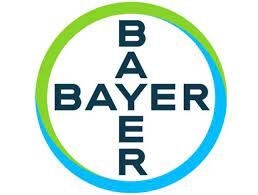New Bayer settlement proposal keeps Roundup on market
On Feb. 3, Bayer announced a proposed agreement with class plaintiffs’ counsels on a $2 billion settlement fund to resolve outstanding claims that exposure to Roundup, one of Bayer’s signature products that has been mired in litigation, causes non-Hodgkin’s lymphoma. The company is hoping it will resolve the remainder of pending lawsuits not already covered by a $9.6 billion deal, which numbered about 100,000 according to news reports, announced in June.
Like the earlier deal, the current one must be approved by U.S. Superior District Judge Vince Chhabria, who is overseeing the multi-jurisdictional Roundup cases. In its Feb. 3 announcement, Bayer said, “The filing of a motion for preliminary approval today begins the review process by the court. In structuring the plan, the parties have worked diligently to address questions previously raised by the court.”
The new fund would pay out up to $200,000 to individual plaintiffs who developed non-Hodgkin’s lymphoma after exposure to glyphosate and who file to join the class within a settlement period, which can still be extended if the parties agree. The fund would also provide for those exposed to glyphosate who develop non-Hodgkin’s lymphoma in the future.
Under the new proposed deal, Roundup would continue to be offered for sale. The company continues to insist that glyphosate, the key ingredient in Roundup, is safe for human use under proper conditions and cites studies that demonstrate its effectiveness and safety. First introduced to the market in 1974, Roundup was a blockbuster performer for Monsanto. The company was bought by Bayer in 2018. A broadband weedkiller, it is used in conjunction with crops genetically bred to resist it. The agreement would add to Roundup labels information related to “scientific studies and information that the company has permission to disclose or are in the public domain.”
Other pesticides that may also contain glyphosate are not covered under the Bayer agreement. According to the National Pesticide Information Center, there are up to 750 products containing glyphosate for sale in the United States.
The June deal, which included legacy claims related to dicamba drift and ground contamination from polychlorinated biphenyls as well as those related to Roundup, ran into objections from Chhabria, who objected to a feature in that proposal that would have had claimants giving up their rights to a future jury trial.
The new deal allows any potential plaintiffs who do not file for compensation within a four-year window to sue after that window closes. Those who are dissatisfied with the compensation offered under the deal could also sue.
David Murray can be reached at [email protected].

